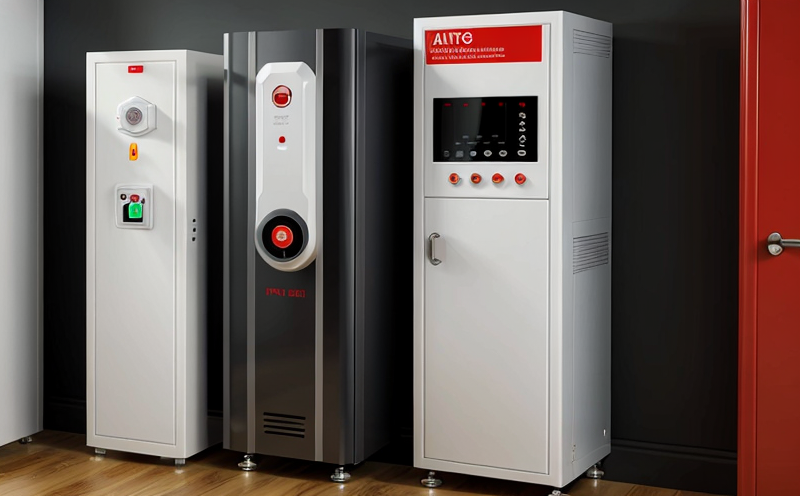EN 54-5 Heat Detectors Testing
The European Standard EN 54-5 defines the requirements and test procedures for heat detectors used in fire detection and alarm systems. These detectors are crucial components that initiate a fire alarm system by detecting increases in ambient temperature, indicating an imminent or ongoing fire hazard.
Heat detectors come in various types, including cable-type, air-aspirating, pendant, wall-mounted, and ionization detectors. The testing under EN 54-5 ensures that these devices meet stringent performance criteria, which are essential for the reliability and effectiveness of fire detection systems. Compliance with this standard is mandatory for manufacturers and installers to ensure public safety.
The testing process involves several critical steps. Specimen preparation typically includes ensuring that all detectors are in their operational state and calibrated according to manufacturer specifications. The test apparatus used may include a temperature-controlled chamber, a heat source capable of simulating various fire scenarios, and data acquisition equipment for monitoring detector performance.
One of the key tests conducted under EN 54-5 is the response time index (RTI) measurement. This parameter evaluates how quickly the detector responds to an increase in temperature. The test involves subjecting the detector to a predetermined rise in temperature and measuring the time it takes for the alarm signal to be generated.
Another critical test is the temperature range evaluation, which assesses the sensitivity of the detector across different temperatures. This ensures that the device can accurately detect fires within its specified operational temperature band without false alarms.
The tests also include verification of the detector’s ability to operate in various environmental conditions, such as humidity and dust levels. These real-world factors are crucial for ensuring reliable performance in diverse settings.
Testing under EN 54-5 is not just about meeting regulatory requirements but also about enhancing public safety. By adhering to this standard, manufacturers can ensure that their heat detectors are robust and dependable, reducing the risk of fire-related accidents.
- Customer Impact and Satisfaction: Ensuring compliance with EN 54-5 enhances customer confidence in the reliability and safety of fire detection systems. This, in turn, leads to higher satisfaction levels among end-users who rely on these systems for their protection.
- Meeting this standard demonstrates a commitment to quality and excellence, which is highly valued by stakeholders such as insurance companies and regulatory bodies.
Eurolab Advantages
Eurolab offers unparalleled expertise in fire safety testing, ensuring that your products meet the highest standards of quality and reliability. Our team of experienced engineers and technicians is dedicated to providing accurate and consistent test results.
We use state-of-the-art equipment and facilities specifically designed for EN 54-5 testing, allowing us to replicate real-world conditions accurately. This ensures that our tests are both rigorous and relevant, leading to reliable and repeatable results.
Our commitment to quality is reflected in the certifications we hold. Eurolab is accredited by BRC Global Standards for fire safety products, ensuring that our testing processes meet international standards. We also maintain ISO 9001:2015 certification, demonstrating our dedication to continuous improvement and excellence.
Our global network of laboratories means that we can provide localized support and services tailored to your specific needs. Whether you require testing for a single product or an entire range, Eurolab’s experienced team is here to assist.
Quality and Reliability Assurance
At Eurolab, we take quality assurance seriously. Our rigorous testing processes ensure that every product meets the stringent requirements of EN 54-5. We employ a comprehensive approach to quality control, from initial specimen preparation through to final analysis.
The testing process involves multiple stages, each designed to identify potential issues and ensure compliance with the standard. This includes not only the performance tests but also inspections for any defects or inconsistencies in manufacture that could affect reliability.
Our quality assurance team works closely with clients throughout the testing process, providing regular updates and feedback. This ensures that any necessary adjustments can be made promptly, minimizing delays and ensuring a smooth testing experience.
The results of our tests are meticulously documented and reviewed by our technical experts to ensure accuracy and reliability. These reports are then provided to you in a clear and concise manner, allowing for easy understanding and implementation if further action is required.





